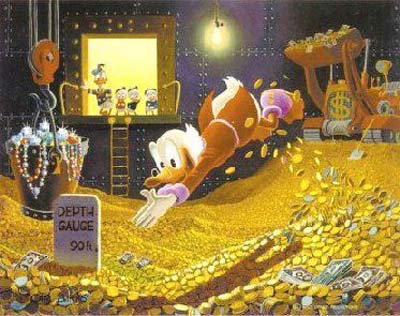
Posted on 06/20/2013 8:48:59 PM PDT by chessplayer
...The simple fact that the data is encrypted and that the NSA wants to crack it may be enough to let the agency keep it indefinitely.
...In other words, privacy advocates may be facing a nasty Catch-22: Fail to encrypt your communications, and they’re vulnerable to any eavesdropper’s surveillance. But encrypt them, and they become legally subject to eavesdropping by the most powerful surveillance agency in the world.
(Excerpt) Read more at forbes.com ...
Tired of their leaks. Isn’t it time we leaked on them?
It curiouser and curiouser. Big Brother goes through the looking glass.
Generate a truly random file, encrypt it, and send it. Make your “random” files much more frequent than your data files.
Won’t stop them, but will slow them down as they try to “crack” randomness.
LOL -- That's a amusing idea.
PGP or stega.
“This bill is an abomination!” said Rep. Gwen Moore, D-WI.
Trying to interpret her statement is harder than ‘cracking’ randomness.
Well, can I obtain and keep 0mama’s stash?

Do it again and again. Have everyone you know do it again and again.
Suddenly we have a stimulus program that puts people back to work in high tech, high paying jobs. Whether Utah is big enough state to warehouse all the metadata may be problematic. There is some hope and change I can believe in.
They can keep it, but they might have to hang on to it for a while...it doesn’t take much to encrypt something that would take all of the computing power on Earth the remainder of time and all the ergs of energy in the universe to decrypt - unless they get something real out of quantum computing.
Well, if the NSA says so it’s settled. No need to ponder this any longer.
In other news, Jeoffrey Dahlmer says human flesh is okay to eat.
Won’t stop them, but will slow them down as they try to “crack” randomness.
Nothing is truly uncrackable, but given the fact that data is sent in packets over the Internet, there is a way to make it extremely difficult to do.
Basically, you need to have a "scratch pad" - for one time only use.
Here is how it works:
1. Both the sender and receiver initally have to have each other's encryption keys.
2. When sending a file, the sender's encryption program includes a new randomly-generated 128-bit encryption key with each packet [along with the data]. 256-bit encryption keys are even better.
3. The new encryption key tells the receiver's encryption program what the new key is for the NEXT packet.
4. This process continues until the entire file is sent.
While not truly uncrackable, the NSA would have to decrypt on a pack-by-packet basis. MAJOR HEADACHE !!!
Anyone remember the old usenet days? 1993 or so? It seemed a regular occurrence that a thread would start about this key or that. PGP as I recall was a favorite. It would never take long before some newcomer who seemed to know a hell of a lot about encryption and would assure everyone their stuff was private. I tried to tell folks back then that if the NSA was the source of their code they didn’t have to “crack it”. As the old saw goes, the only way three folks can keep a secret is if two of em are dead.
Interesting. How many people will encrypt garbage and send it back and forth with friends?
I strongly recommend everyone download GPG now before the government forces them to install a backdoor. thank God for the Bill of Rights even if the government regards it as a minor historical triviality and doesn't let it get in the way of their ongoing goal to rule every aspect of our lives.
How many of your friends play this little game? I’ve been banging the encryption drum with respect to email for years to little effect. Nearly all of my friends are technical and none of them want to bother with encryption in the slightest. That makes the use of encryption really stand out. And if the person on the other end won’t play, well...
Unencrypted email has all of the privacy of a postcard. Anybody who has access to any of the many machines that handle the mail can read it with ease.
Heck - generate lots of them of various sizes. Encrypt them with one algorithm, re-encrypt them with another, using 20 character randomized strong passwords for each ... do it about 5 times to keep them really busy.
Three with two more on rare occasions Like anything interest waxes and wanes depending on boredom levels
Disclaimer: Opinions posted on Free Republic are those of the individual posters and do not necessarily represent the opinion of Free Republic or its management. All materials posted herein are protected by copyright law and the exemption for fair use of copyrighted works.